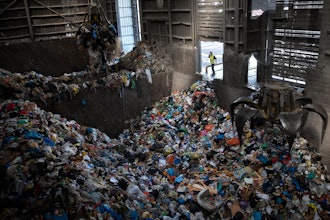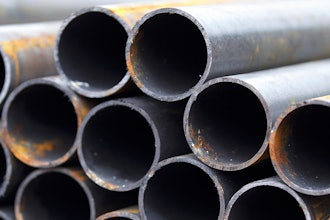PROVIDENCE, R.I. (AP) - After Rhode Island won a landmark lawsuit against three former lead paint manufacturers last year, advocates hoped the state's victory would trigger a wave of additional success against the industry.
But two recent court decisions in New Jersey and Missouri have sided with the manufacturers in a setback to ongoing efforts by some states and municipalities to force the companies to clean up homes contaminated with lead paint. Legal experts say the dual decisions reflect the challenges in suing companies over a product made decades ago.
''These cases certainly combine to take away any momentum that lead paint plaintiffs might otherwise have had,'' said Howard Erichson, a law professor at Seton Hall University.
It remains unclear what effect, if any, the cases will have in Rhode Island, which was the first state to sue the industry and won a landmark public nuisance lawsuit in February 2006. That case is being appealed to the state Supreme Court.
A spokeswoman for the defendants said she was gratified by the rulings, while a lawyer who represented Rhode Island cautioned against making too much of them.
''It's a marathon,'' said Jack McConnell, a private attorney for the state. ''There's going to be ups and downs until these folks are brought to justice.''
The companies are appealing the verdict to the Rhode Island Supreme Court, which has not yet set a date for arguments. Meanwhile, the trial judge, assisted by a special master, will decide on a cleanup of properties containing lead paint that has been estimated by some to cost billions of dollars.
Legal experts say the Rhode Island Supreme Court will certainly be mindful of the rulings in the other states but are under no obligation to take them into account.
Still, the New Jersey ruling in particular could have a ''profound'' effect on other states since that court has a reputation as being progressive on products liability issues, said Donald Gifford, a law professor at the University of Maryland School of Law.
''Obviously the lawyers for the state of Rhode Island are going to try to distingush the New Jersey opinion, and the lawyers for the pigment companies are going to try to claim that they're virtually identical situations,'' said Gifford, who has consulted for the companies.
The federal government banned lead paint in homes in 1978, meaning the companies stopped manufacturing the product decades ago. It's difficult to determine which company made a particular paint in any given home - which the Missouri court required. And other parties, such as landlords who allow properties to deteriorate, are often subject to blame.
Bonnie Campbell, a spokeswoman for the defendants and a former Iowa attorney general, said she was confident that Rhode Island's justices would reach the same conclusion as appellate courts in Missouri and New Jersey and Illinois.
''These defendants neither own the property nor control the product that's there,'' said Bonnie Campbell, a spokeswoman for the defendants and a former Iowa attorney general. ''It's just common sense that it's way too attenuated.''






















